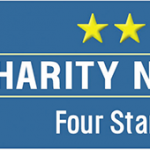“We do not know how much the patient assistance programs actually paid and who actually received the benefits,” Dr. Anderson said.
Another open question is whether drug assistance programs might encourage patients to take expensive medications when more affordable options are available, says Katherine Kraschel, co-author of an accompanying editorial and executive director of the Solomon Center for Health Law and Policy at Yale Law School, New Haven, Conn.2
“The purpose of cost-sharing is to help keep drug costs down,” Kraschel said by email. “If patients have a large out-of-pocket expense they may ask their prescribing provider if there’s a lower-cost option. When a patient assistance program covers the patient’s cost-sharing obligation, their cost sensitivity goes away, negating the cost-containment purpose of the design, and facilitating purchase of expensive drugs.”
References
- Kang S, Sen A, Bai G, et al. Financial eligibility criteria and medication coverage for independent charity patient assistance programs. JAMA. 2019 Aug 6;322(5):422–429. doi:10.1001/jama.2019.9943.
- Kraschel K, Curfman G. Patient assistance programs and anti-kickback laws. JAMA. 2019 Aug 6;322(5):405–406. doi:10.1001/jama.2019.9791



